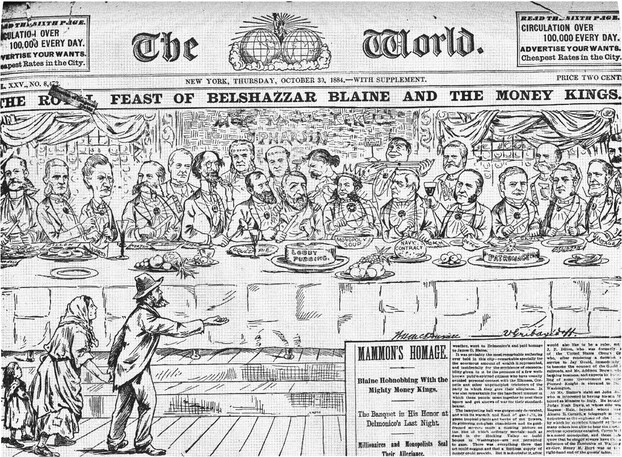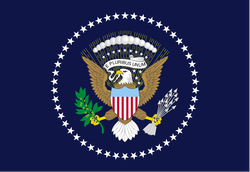
A Proposal for a Third Party Candidate for President of the United States
by john111
This article questions the positions of macro and micro economics. A proposal is made for a platform for a third party candidate for President of the United States in 2012.
 Photo of W. Stanley Jevons |
W. Stanley Jevons
19th Century Capitalism Apologist
September 1835 – 13 August 1882) Jevons was an English economist and logician. He made the case that economics as a science concerned with quantities is necessarily mathematical.
Is There Something Out of Place With American Capitalism?
Do Remedies Exist for a Debt-laden Nation?
I have decided to publish an opinion piece. I guess you could say that if my proposal met with acceptance, there might be a lot more jobs available.
I read an article today that really got me thinking. It was an article contrasting the difference between macro and micro economics, and then behavioral economics.
With the macro view you study the averages of nations and the world for consumption, gross national product, etc.
With the micro view you look at the individual’s averages. This could include how much he spent this year, month, or day. It could also include the types of things he/she consumed.
I think you get the idea.
But it was behavioral economics that got me thinking. In the article, it was mentioned that behavioral economics studied the behavior of the individual with regard to purchasing and saving. It was noted that under today’s market conditions, people were saving a bit more than usual. This should provide an opportunity for business to borrow. Savings being up, the greater the pool of capital. But they are not borrowing. Also, interest rates are so low (on a macro level) that employers should be expanding their companies and hiring more workers. Of course, we don’t see the expansion of plant and equipment which should provide jobs. So it appears that neither the micro nor macro viewpoint apply today. This is confounding many people, to say the least.
It seemed to me that capitalism as described by Republicans is not working now. Somebody who is a candidate for President of the United States needs to admit that the works of Adam Smith might be flawed. But a little correction to the theory might be useful.
What if a candidate said that previous views of capitalism were not quite right? How about if that candidate said that what we know of capitalism could work as long as it is capitalism WITHIN BORDERS? Let me explain what I mean.
George Bush 1 was kind enough to offer the Chinese the chance to trade with the United States. This was the anchor for the beginning of the end to communism Chinese style. But one of the difficulties is that if you take a society living in what is for all practical purposes a medieval era, and then entice them with machines to manufacture cheap goods, that country will use their cheap labor advantage to decimate your industry. And, not being overly judgmental, wouldn’t you? That is exactly what happened between 1980 and today.
To right this imbalance which has occurred over the last 30 years, why not champion a philosophy of capitalism within borders? In other words, acknowledge that capitalism works when labor costs are adjusted. Think of the activity that would occur in the United States if the free market applied only to citizens who owned business within the CONFINES of the United States. This is really what is going on in other countries. Europe and Asia have restrictions to U.S. imports in an attempt to protect local business and industry. This isn’t really news since there are many reports about proposed retaliation for unfair trade practices all the time. Check it out!
What if the United States proposed eliminating trade as far as those products produced by countries who had an unfair advantage in the area of labor costs? What if the trade was unfettered only as far as products were produced at a labor cost which allowed a profit for management? I mean what if the market worked to produce a profit for management/shareholders but there was no predefined level of profit required (oh, we have to make at least 12% to be profitable, etc.)? In other words, industries would have to cut profit in order to sell abroad, and not at the expense of labor. As long as industries truly competed, labor costs would stay in line less the cost per unit exceeded that of a foreign nation. If management could not figure out a way to provide product at a lower cost per unit, it would have to reorganize. This might be awkward at first, but after awhile the inefficiency of our labor force would be worked out. Labor (unorganized) would gladly take concessions, and management would gladly take a smaller profit. We would get used to living on less, but have jobs, and the foreign economies who are now having their way with America would have to get used to living on less, which they did for thousands of years until the U.S. offered an open market.
Such a change would no doubt involve a starvation situation in many places, but as we have in the past, we could ameliorate the situation ‘til things “leveled”. Look how much food we give away as a nation each year? Does that ever stop? If we continue the way we have, many of our overseas brethren will starve anyway, for there will be no markets. Since this is the breadbasket of the “world" - no hyperbole here!), we would suffer somewhat (less than others), but I think the consequences would be far less harsh than if perpetuating the current situation.
 | Our Country's Presidents: A Complete Encyclopedia of the U.S. Presidency (Encyclopaedia) National Geographic presents the 43 individuals who have led the U.S., plus America's newest commander-in-chief, in this up-to-date, authoritative, and lavishly illustrated fami... |
 | FDR, Part 1 |
Political Elite
 Balthazar Blaine |
Political cartoon from October 1884, showing wealthy plutocrats feasting at a table while a poor family begs beneath
Third Party Political Stand
I think this is a stand that either a Democratic or Republican nominee for President of the United States could take. The current contenders on either side don’t seem to have a clue. This is not a political question anymore. Too many people are having to realign their lives with the current situation which provides little hope. We might just muddle along and work it all out after decades, acknowledging that we have made mistakes as a country, but what if we acknowledged those mistakes now and made a change in our viewpoint? If we were able to do this, we could over time pay back all the debt we owe to China and others, despite the limitations foreigners would experience. The current dogma is getting a bit old.
If industry elected to move its industrial base abroad, then it would suffer the consequences of the new trade policy. If a company decided to move abroad, new industry would develop at home via the free enterprise model and folks would be willing to work for less (understanding the situation, once again.). A new industry would offer lower paying jobs. If you look at the hourly pay of folks at some of our biggest manufacturers, there is a lot of room for negotiating. I don't fault people for managing to have really high wages, but to encourage expansion, perhaps those wages have to be leveled, at least for awhile.
Perhaps there are flaws in my thinking. Or, on the other hand, perhaps there are flaws in other peoples’ thinking! Hay is always made when a person proposes a somewhat unconventional solution to their economic woes. But what I have observed is that the nay sayers about the American market system have been right for quite some time now. Look at how things have transpired. If you argue with me on this point, we can’t have a civil discussion.
It seems to me that our political system has frozen any idea of reform. We have one party for this, and one party for that, and by God, that’s the way it will be. But why? If we could find a Jeffersonian person amongst us much smarter than me, why couldn't there be a third party to suggest such things? Any Jeffersonian people out there?
This piece is not an attempt to proselytize anyone. I simply hope it will get some people thinking.
When it comes to sharing all of one's wealth through trade and annhilating one's economy, surely there must be a middle ground so both can grow, albeit not as fast, and survive? Right?
You might also like
Scent of a President: Four American Presidents Favoring Caswel...Caswell Massey has been in business longer than the United States has been an...
Why Did The British Celebrate Thatcher's Death?It might be difficult for some to imagine why Margaret Thatcher's death will ...



 Who Won the Vietnam War?on 05/27/2018
Who Won the Vietnam War?on 05/27/2018
 Icelandic Financial Upturn 2011 - 2017on 12/18/2017
Icelandic Financial Upturn 2011 - 2017on 12/18/2017
 An Arizona Man's Wizzography - Few Regretson 02/10/2012
An Arizona Man's Wizzography - Few Regretson 02/10/2012



Comments
In the UK we have many parties, and I have often thought that America could do well with a third party alternative to the big two.
Yes, this is a difficult issue but one that needs to be dealt with head on. There definitely needs to be a better balance. It's not fair to companies who have to pay higher wages because of min. wage requirements and other legislation. You make interesting points.
Yes it definitely needs a middle ground. Each country is struggling these day to keep their heads above water, financially. We want others to buy our goods but don't want theirs flooding in, Same here in the UK. I have n idea what the answer is. Interesting read